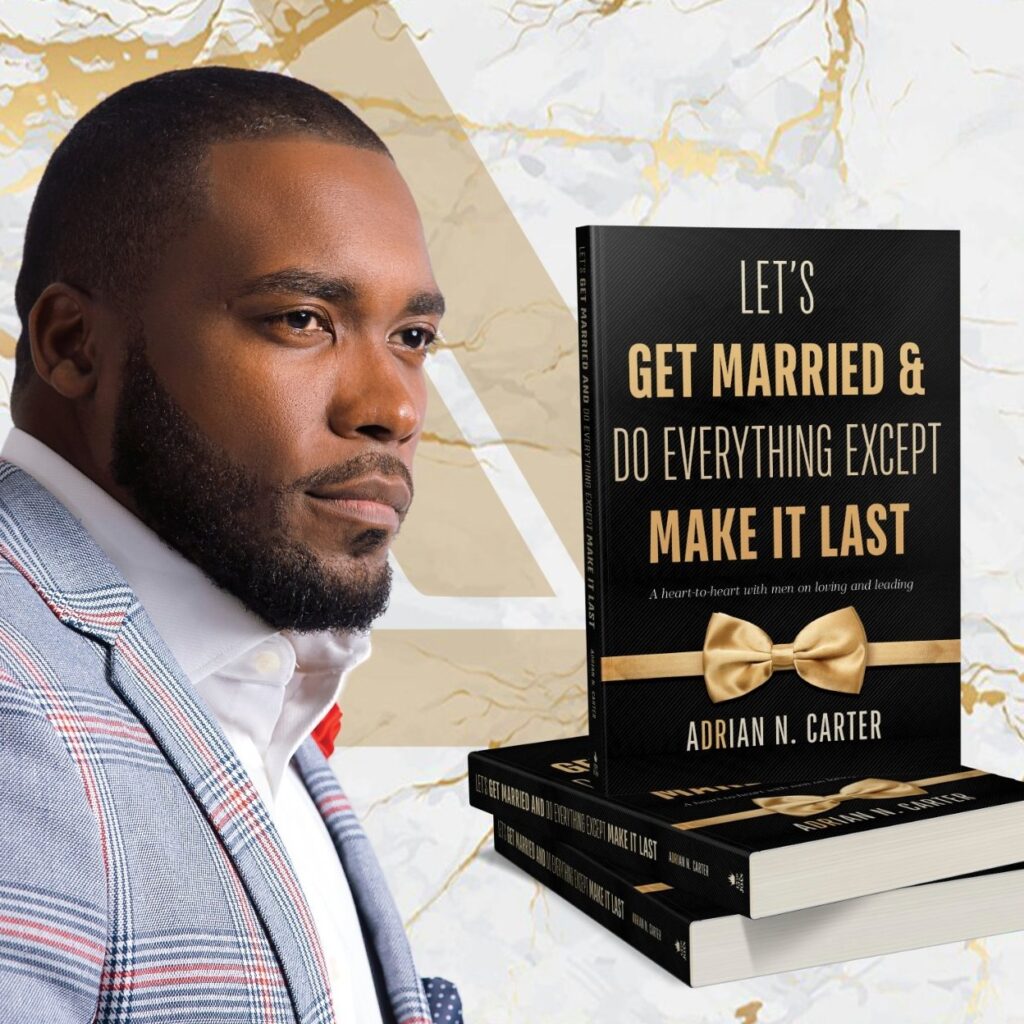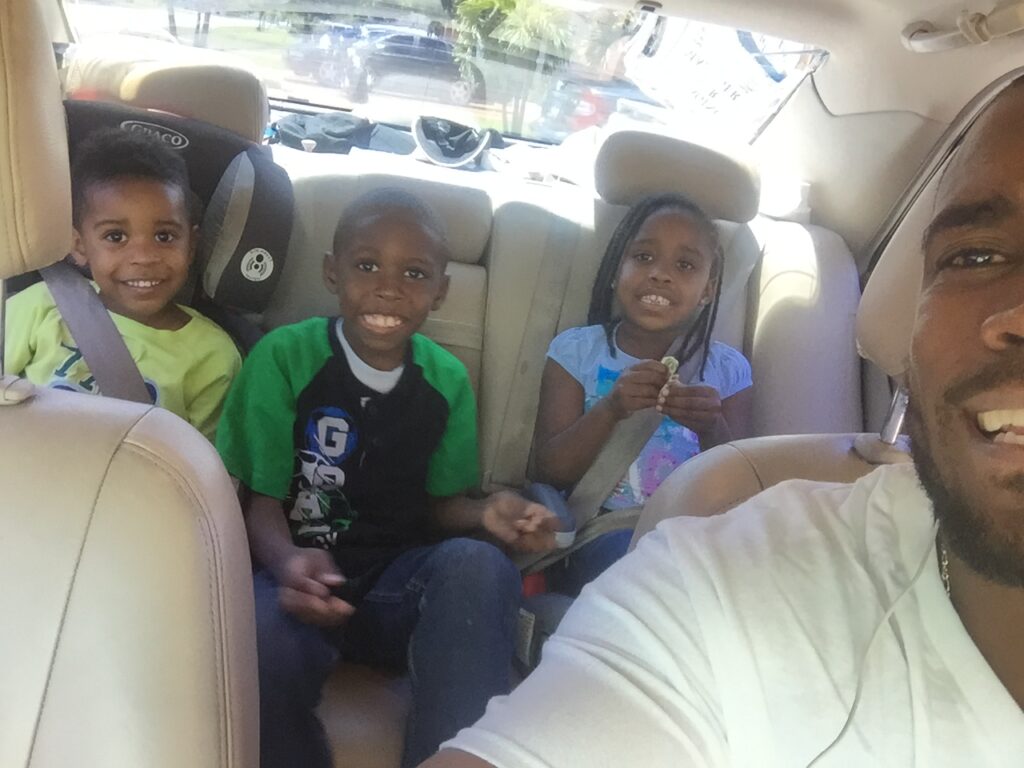
I am a child to divorced parents. Divorce IS hard. Not only for adolescents but their parents as well. It was hard accepting the fact that I would no longer see my family under one household and the mere thought of being hours away from my father. I convinced myself that I cool with the situation, but I wasn’t. I accepted the fact that my parents were not going to be together which was honestly best for the both of them. I was hurt. I was angry with my father. I blamed him for letting our family’s dismantle. I blamed him because he was the head of the household and I didn’t understand how he would allow our family to split.
Recently, I talked with my father about the emotions he felt going through a divorce. I never thought how tough it was on him. At 15, I knew both of my parents played their parts with their divorce. Maybe it’s because I never saw the tears on my father’s face or because he never learned how to show vulnerability in front of his children. It was not fair for me to solely blame my father but I didn’t know how else to feel. There’s no manual on how to navigate life’s obstacles. The closes thing we have are the lessons we learn.
Dear Fathers connected with an author who shared his experience with marriage and divorce. Adrian Carter is the author of the book “Let’s Get Married and Do Everything Except Make It Last….”. Adrian gave us insight on fatherhood, the inspiration behind ‘Let’s Get Married…’, and who is his top TV dad.
Tell us a little about yourself (who you are, background, etc.)?
I am a conflict resolution and leadership development trainer and have engaged in this work progressively for 20 years. I’m currently in the dissertation phase of my doctoral program in Conflict Resolution Studies. My research focuses on the identity conflict faced by Black boys in middle school due to the lack of the Black identity represented throughout the curriculum. I also created the EmpowerMEN Conference, a male empowerment initiative focused on conflict resolution, leadership development, activism, and redefining the identity of men in the 21st century.
What is fatherhood like for you?
It was 1992, on the morning after Hurricane Andrew had swept through South Florida that I knew deep within my being that I wanted to be a father. I rolled out of bed to find my father stand outside talking with neighbors and assessing the minimal damage of the other homes. He saw me come through the iron cast screen door and called out to me with a mountainous smile on his face. He grabbed me and lifted me above his head. I peered into his soul through is eyes and saw nothing but love and joy for me as his son. It was at that moment I knew I wanted to be a father one day so I can love someone as much as my father loved me.
I have three little ones, two boys and a girl. I’ve learned the importance of taking my time with each of my children to help them develop based on their personalities. It’s as if my personality has been split into three. The reflection of myself has been profound in learning how to love myself in how I love them. Fatherhood is rewarding. They are my legacy and my most important job has been focusing on building something for them to step into as they grow older.
What obstacles did you have to overcome with Fatherhood?
I’ve always been a hands-on father. Divorced and fathering can be emotional at times. The emptiness when they leave the house is drowning, co-parenting has twists and turns, and parenting on your own when they are in your care can be challenging. I overcome this by teaching my children how to be inter-dependent on each other and how to operate as a unit. But I prevail. As I grow as a business man and educator, I include them so they can grow and see the example I’m setting as a father and man.

What made you write the book, “Lets Get Married…”? How have you grown from the experience dealing with marriage and divorce? What do you want others to learn from reading your book?
I learned in a very hard way how the emotions and experiences of men are overlooked. While going through my divorce, so much of the feedback from my environment basically said I should have done more to make my relationship work because I was the man. It was mind boggling. I kept wondering, how is so much weight placed on me as the man when there is a whole other adult in the relationship? It was a very dark place for me seeing the way traditional norms and gender roles undermined the male emotions. It inspired me to tell the story of men as emotional creatures who desire to have healthy relationships but very often end up getting the short of the patriarchal stick. As I spoke out more about my concern with this structure, I encountered more men who shared a similar story. I began to learn about more men who had been emotional outcasts, ridiculed, and left shut off from letting the world know they were hurting. We’re making strides as the talk about mental health and wellness has become increasingly more acceptable.
What’s wrong with the narrative displayed about black fathers and what things do you do to help change that narrative?
The narrative of Black fathers as absent in their children’s lives concerns me. We are not absent. We are statistically more present than any other race of men who are in co-parenting situations. Also, the narrative of men as present but inactive is also false. I know plenty of men who are fluently bi-lingual in domestic duties and their careers. The social construct dubs men as hyper-sexual, potential perpetrators who don’t have an emotional compass of compassion. The truth is, we are not any different from women in feeling and healing. Our experiences are shared and so is our victimization.
What was your fatherhood experience like growing up and how did that impact you today?
I could not have asked for a better father. That man loved me as a child and still loves me to this day. He is a pastor, comedian, storyteller, and man of incredible ethics. He has been a great example. He’s done better than the best he could with what he had. I admire his watchfulness and well-mannered nature to do the right thing as part of his being. He disciplined me as a child, but he spent more time communicating to me his hope of me doing well in life. That stuck with me. I knew I had to do well, make something of myself and represent his legacy.
Who are 5 strong black fathers that you look up to (can be personal, celebrity, etc)?
• Dudley Carter, my father
• Dr. Deryl G.Hunt, pastor and mentor
• Fritz Maurisseau, my ex-father-in-law. After learning his story, I’ve always been impressed in his simple desire to do the best he could as he hoped for better.
• Dexter Hunt, a personal friend
• J.R. Thicklin, a mentor
Name your top TV dad of all time and explain why?
On a comical note, Peter from Family Guy. He breaks all the rules of appropriateness and normalcy. I get a kick out of his aloofness. On a serious note, Bill Cosby still takes the cake for me. As utopian as his world may have seem, it was great to see the calm demeanor of parenting and the right-now word of advice that got the kids and family through an upper-middle class challenge.
What advice would you give someone that’s new on the fatherhood journey?
Don’t let them fool you into thinking women are naturally more nurturing. Being a nurture is not a female trait, it’s a trait of love. Nurture your child. You are a nurturer. Skin to skin contact with your newborn is just as important as with the mother. You are an equal part of this process.
If you could write a short letter to your father starting with “Dear Father,” what would you say?
Dear Father,
Your father wasn’t around—you only met him three times, the last time being when you were 19-year-old. I cannot imagine what it must have been for you wondering why he left; wondering if he loved you; wondering what he looked like; wondering if you would see him again. It’s a reality I will never know because you chose different. Thank you for not allowing that cycle to permeate into my life. I’m grateful for our mentor, Dr. Deryl G. Hunt, who became a father-figure to you and how love has built you up as a son. You are worthy, important, and cherished. What was meant for your bad became my good, and for that, I love and appreciate you.
How can readers connect with you?
Instagram: @adriancarterspeaks
Facebook: @adriancarterspeaks
Website: www.adriancarterspeaks.com






